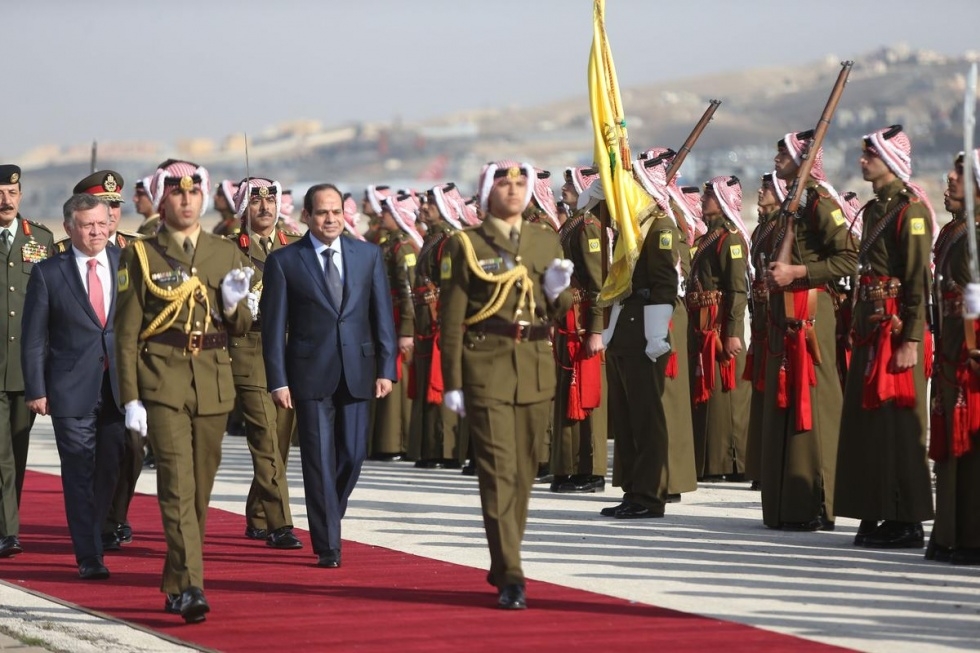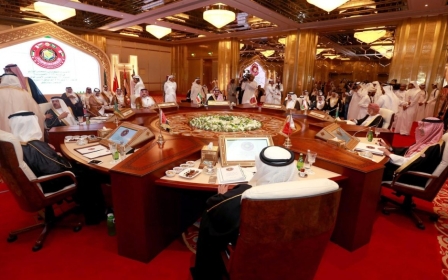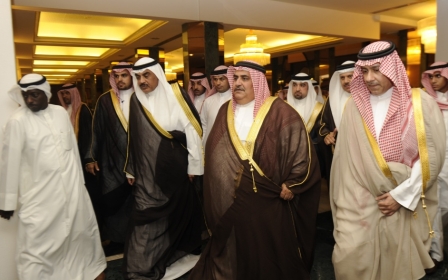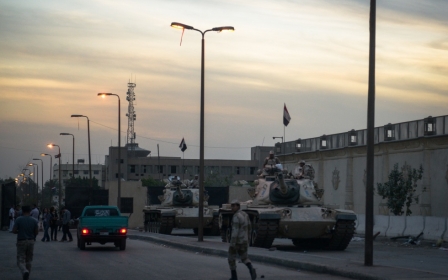Egypt basking in basin of support by Arab leaders

Revelling from the publicly announced and recently reiterated support by Arab leaders, Egypt has capitalized on this matter by wasting no time in meetings with different officials.
The annual GGC Summit meeting that took place earlier in this week on Monday in the Qatari capital of Doha confirmed the six Gulf countries’ united stance in their commitment to back President Sisi’s regime. Qatar’s initial differing position, which supported the Egyptian opposition group the Muslim Brotherhood, was the cause of an earlier schism with Saudi Arabia, Bahrain and the UAE. The latter countries withdrew their ambassadors from Doha in March 2014, before they agreed to reconciliation in November.
Prior to the summit meeting, Egyptian intelligence Chief Mohamed Farid Al-Tohami was in the Saudi capital where he met with Saudi Crown Prince and Minister of Defence Salman bin Abdel Aziz al-Saud. Al-Tohami then met with the Bahraini Prime Minister Khalifa bin Salman al-Khalifi on Thursday in Manama, Bahrain. The Bahraini PM reaffirmed his country’s support for the Egyptian government, declaring that Egypt have their support in fighting “terrorism” and to preserve the national security.
For his part, President Abdel-Fatah Sisi made his first state trip to Jordan to meet with King Abdullah in order to discuss a number of issues.
Egyptian presidential spokesperson Alaa Youssef told the media that "Egypt and Jordan stressed their keenness on bolstering bilateral relations on all fronts, especially the economic and political fronts."
The two heads of state brought up the importance of finding a solution to Syria’s civil war, one that will preserve the unity of country’s territory and security. Palestine and Israel were also on the agenda. Sisi and King Abdullah discussed the initiative to, along with other Arab leaders, submit a draft resolution to the United Nations Security Council that will demand a timeline for Israel to withdraw from the West Bank.
Palestinian Authority President Mahmoud Abbas has endorsed the Egyptian government’s crackdown on the tunnels linking the Gaza strip to beyond Egypt’s Rafah border. The Egyptian army, who cited the dangers of smuggling militants and arms to Egypt’s security, says it has destroyed over 1,600 tunnels since Mohamed Morsi’s ouster in June 2013.
Speaking to the Al-Ahram Al-Arabi magazine, Abbas was quoted as saying, “We will continue to support any measure protecting Egypt from danger.”
“We have supported all the precautionary measures taken by the Egyptian authorities to close the tunnels and stop the trafficking of arms and the passage of people between Gaza and Sinai.”
The tunnels were considered as a lifeline to the besieged Gaza, smuggling supplies such as food, clothes, construction materials, cars, and gas. Many see the destruction of the tunnels as a sign of Egypt’s complicity with Israel to further strangulate the coastal enclave.
Egypt has also begun setting up a buffer zone along its border with the Gaza Strip, which will see hundreds of homes demolished, in order to prevent militant infiltration and arms smuggling.
Egypt is considered as a key strategic regional player, and the insistence of the western friendly Arab regimes to openly back Sisi as their ally is testament to the importance of cementing a power balance against countries like Turkey and Iran.
New MEE newsletter: Jerusalem Dispatch
Sign up to get the latest insights and analysis on Israel-Palestine, alongside Turkey Unpacked and other MEE newsletters
Middle East Eye delivers independent and unrivalled coverage and analysis of the Middle East, North Africa and beyond. To learn more about republishing this content and the associated fees, please fill out this form. More about MEE can be found here.




